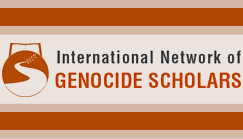Event Title
The impact of one-sided truth commissions on national reconciliation: A survey experiment
Submission Type
Paper
Abstract
Many post-conflict countries use transitional justice mechanisms to address the legacy of the past and promote societal reconciliation. However, these measures may be implemented in a biased way, which can be counterproductive and give rise to increased distrust and animus. This is particularly so in ethnically-divided countries. This research examines the effects of a one-sided truth commission – to what extent does this hinder vertical reconciliation between the individual and the state institutions and horizontal reconciliation between social groups? Experiments that prime respondents with biased truth commissions are embedded in original surveys carried out in 2019 in Northern Ireland and Aceh in Indonesia. The research finds that there is significantly less support for truth and reconciliation processes when they are seen as one-sided. The implementation of transitional justice can have deep effects even many years after the formal end of the violence and the results show the importance of the implementing transitional justice in a just and equitable way.

The impact of one-sided truth commissions on national reconciliation: A survey experiment
Many post-conflict countries use transitional justice mechanisms to address the legacy of the past and promote societal reconciliation. However, these measures may be implemented in a biased way, which can be counterproductive and give rise to increased distrust and animus. This is particularly so in ethnically-divided countries. This research examines the effects of a one-sided truth commission – to what extent does this hinder vertical reconciliation between the individual and the state institutions and horizontal reconciliation between social groups? Experiments that prime respondents with biased truth commissions are embedded in original surveys carried out in 2019 in Northern Ireland and Aceh in Indonesia. The research finds that there is significantly less support for truth and reconciliation processes when they are seen as one-sided. The implementation of transitional justice can have deep effects even many years after the formal end of the violence and the results show the importance of the implementing transitional justice in a just and equitable way.





Comments
View the agenda item.
View Lesley-Ann Daniels' bio.